Refugee returned to Kyiv due to state of UK home
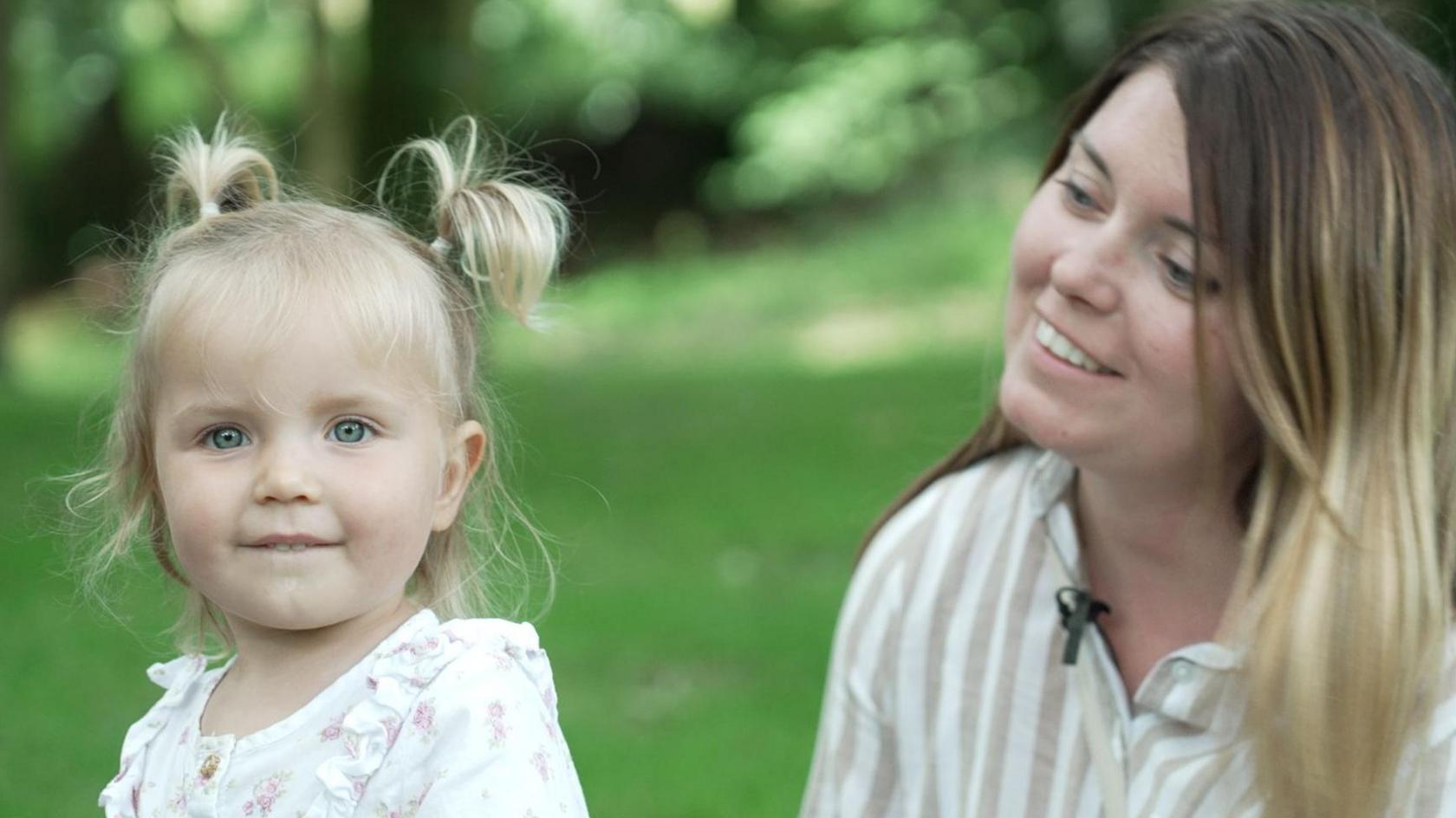
Taisiia, pictured with daughter Solomiia, considered moving back to Ukraine because of the condition of the Swansea house she was offered
- Published
A Ukrainian refugee returned to live in Kyiv rather than stay in the accommodation she was offered in Swansea due to its condition.
Taisiia, 35, returned to her war-torn home country for 21 days with her seven-month-old daughter as "it felt like a better option".
But she has since returned to Wales, and has thanked volunteers in the community who came to her rescue to help renovate the home, saying they are the reason she can now stay safe in Wales.
Swansea council said the kitchen and bathroom had previously been upgraded, walls had been freshly plastered and painting and decorating materials had been provided.
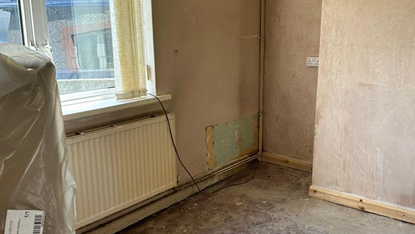
Taisiia's house before she moved in
Taisiia - who wanted to be identified by her first name only - and daughter Solomiia arrived in Swansea via Poland in June 2022. Her husband Dmutro remained in Kyiv, splitting the family apart.
Initially, Taisiia and Solomiia lived in Mumbles with a family as part of the Homes for Ukraine scheme.
She said the family were incredibly helpful and still keep in touch, but in January 2023 she started to look for independent housing.
"Being a single mum, no-one from the agencies gave me a chance to rent. I only saw three properties in seven months," Taisiia told Wales Live.
She said she was advised to make herself "homeless" to be considered for social housing, and stayed in hotels and with friends she had made in Swansea.
Taisiia was then offered a potential house, but she said its condition was not fit to be lived in.
She said: "There were a lot of holes in the walls and floors, it smelt of dog wee and the radiator was leaking. To be honest the basement in Kyiv was in better condition."
Taisiia made the difficult decision to try and return back to Ukraine to live.
"We went back to Kyiv for 21 days, but we didn't sleep because of the attacks. We felt like zombies as a result."
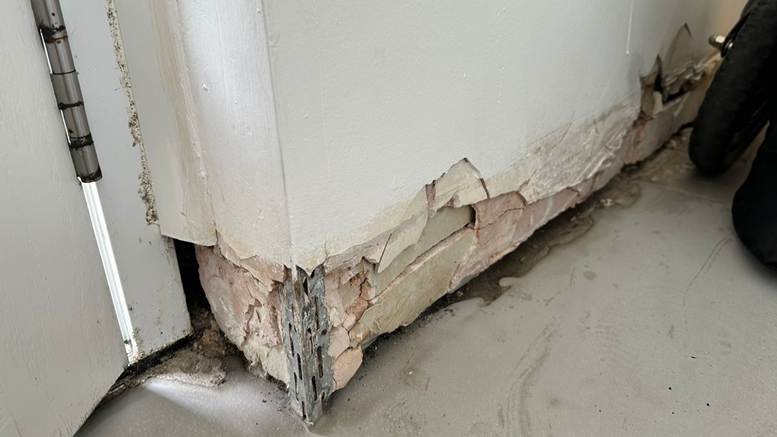
Walls at the house had damage
After realising her quality of life in Kyiv would be poor, she paid £2,000 in order to renovate the Swansea house.
Volunteers and neighbours helped to put down new flooring, plaster walls and paint. She said she was incredibly grateful.
"If there wasn't this help from people I think we would be living in Kyiv, despite it being unsafe. We are so grateful for all the help we have been given," she said.
"July for me was the most horrible month in my life, it was so hard to organise the house with a little baby alone, it was very very hard."
Swansea council said since the start of the conflict in Ukraine, the city had housed around 120 Ukrainian households in private, social and council accommodation.
But despite securing a home in Swansea, Taisiia says her future still remains unclear.
The UK government has issued visas lasting three years to Ukrainians seeking sanctuary in the UK.
The first visas granted were due to expire in March 2025 before an 18-month extension was announced in February.
Immigration and asylum law lecturer Jennifer Morgan from Cardiff University said Ukrainians in Wales still faced a “worrying time” as uncertainty remains.
She says for those who are struggling to access housing and education, the extension simply “pushes issues further down the road”.
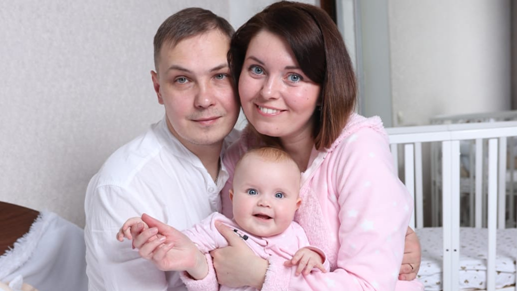
Taisiia and her family in Kyiv one week before the war began
Taisiia said she speaks regularly to her husband, and uses video calls so he can see his daughter grow up. They both returned to Kyiv in December to see him over Christmas.
Despite her home and husband being in Ukraine, Taisiia is making a life for herself in Wales. She is attending a college course so she can transfer her psychology qualifications to the UK.
Solomiia has received a grant so she can go to nursery.
Taisiia added: "For now we don't know what to do, we have built our lives here and are working to find a good job, but of course we are very worried about our future."
The Welsh government said it would have liked visa extensions to have been longer than 18 months.
It said it had provided £8.2m to help “the move on of people from Ukraine to longer-term accommodation and integrate into local communities”.
The UK government said more than 140,000 Ukrainians had been welcomed to the UK.
A spokesperson said it provided "£5,900 per person to councils to enable them to provide support, including in the minority of cases where someone is left without accommodation”.
- Published21 February 2023
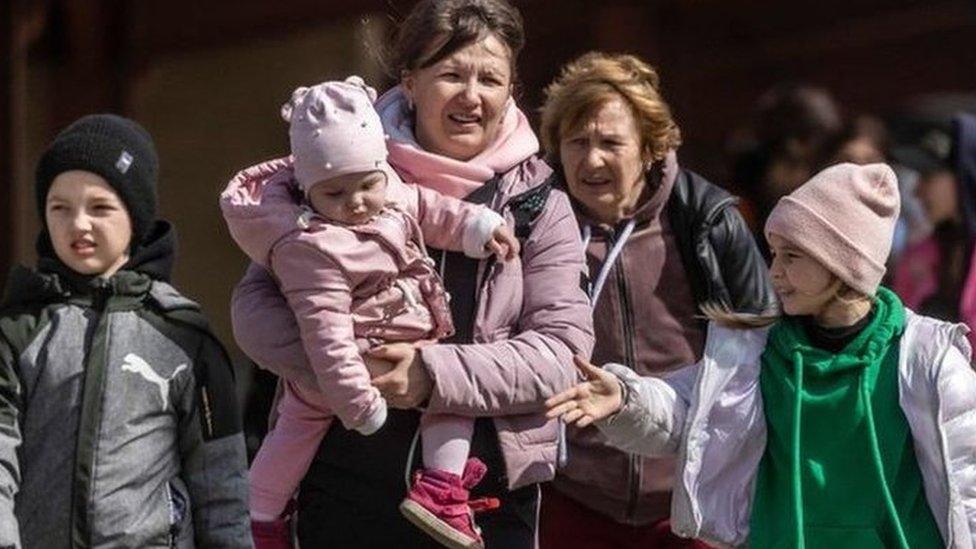
- Published16 March 2023
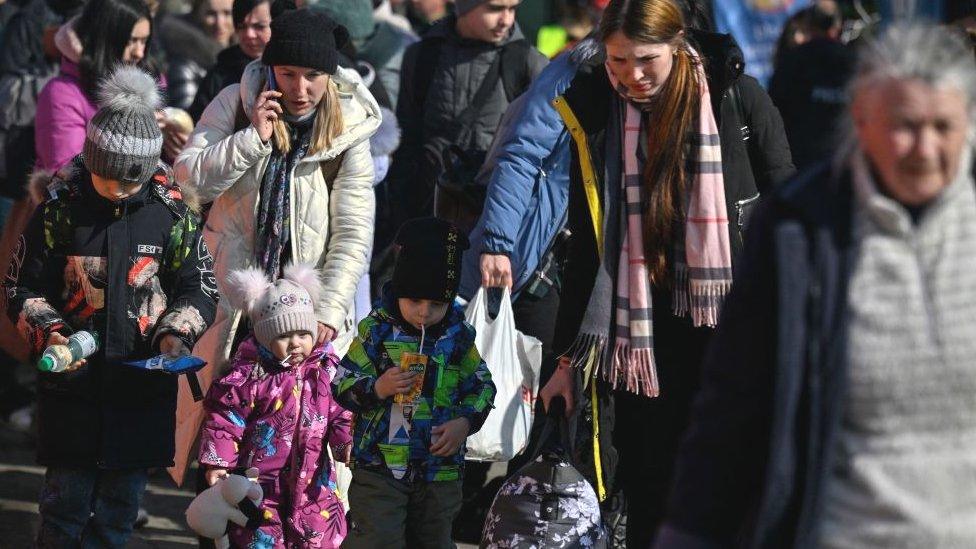
- Published5 March 2024
